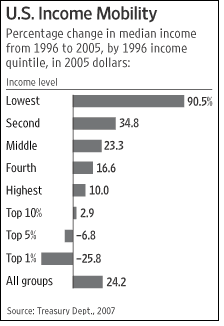A Modest Proposal For US Slavery Reparations
Since most of the Democratic Presidential aspirants have come out in favor of at least studying reparations for slavery, I wanted to offer a common sense proposal. I propose that slavery reparation be paid for by the single organization that had the most to do with the existence and protection of slavery in this country: the Democratic Party.
The Democratic Party was unquestionably the party of slavery. It defended the legality, even the morality, of slavery; it fought for the extension of slavery; and it passed laws like the fugitive slave act to keep slaves in bondage. Every slaveholder or prominent defender of slavery you can name was a Democrat. After slavery was banned over the opposition of Democrats, it was Democrats that crafted and ran the Jim Crow system. As late as the 1960s it was Democrats who blocked the schoolhouse doors to blacks and who filibustered the Civil Rights Act and accounted for most of the no votes on that act. And since Democrats are proposing these reparations, it is entirely within their control to make this happen without even an act of Congress.
Some might say that the Democratic Party and its members are different today and should not be punished for the past actions of previous generations of Democrats. I used to naively think something similar -- that it was madness to even discuss reparations for people who are not even grandchildren of slaves paid for by people who are not even grandchildren of slave-holders. I am certain my proposal makes may more sense than, say, taking the money from someone whose ancestors all lived in Germany until the late 19th century.
